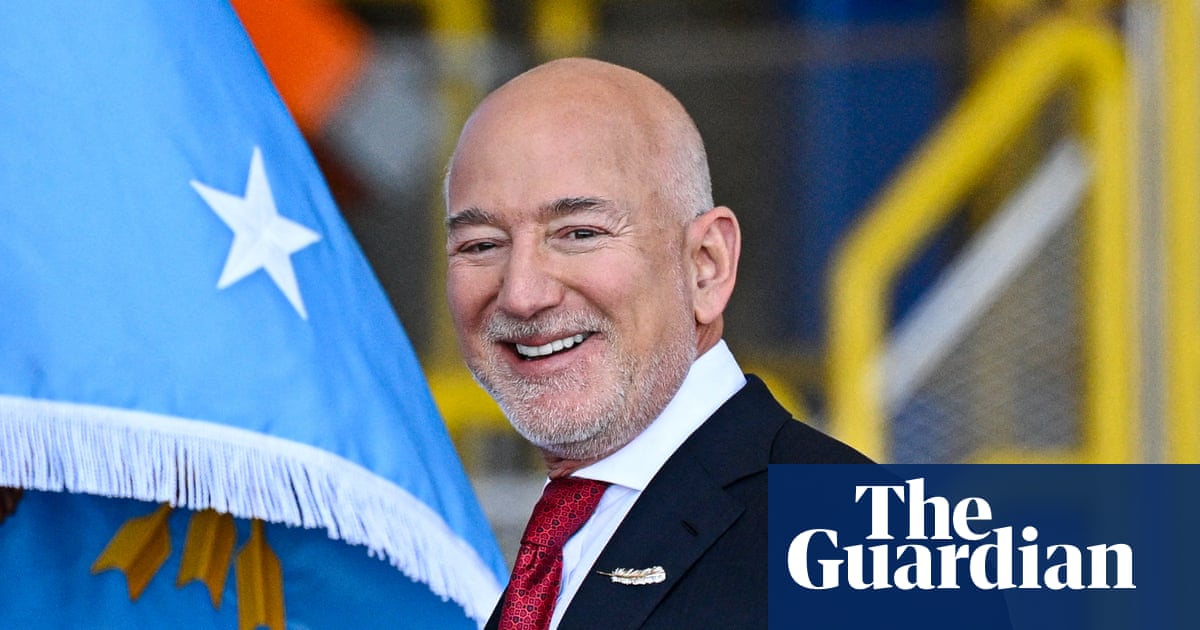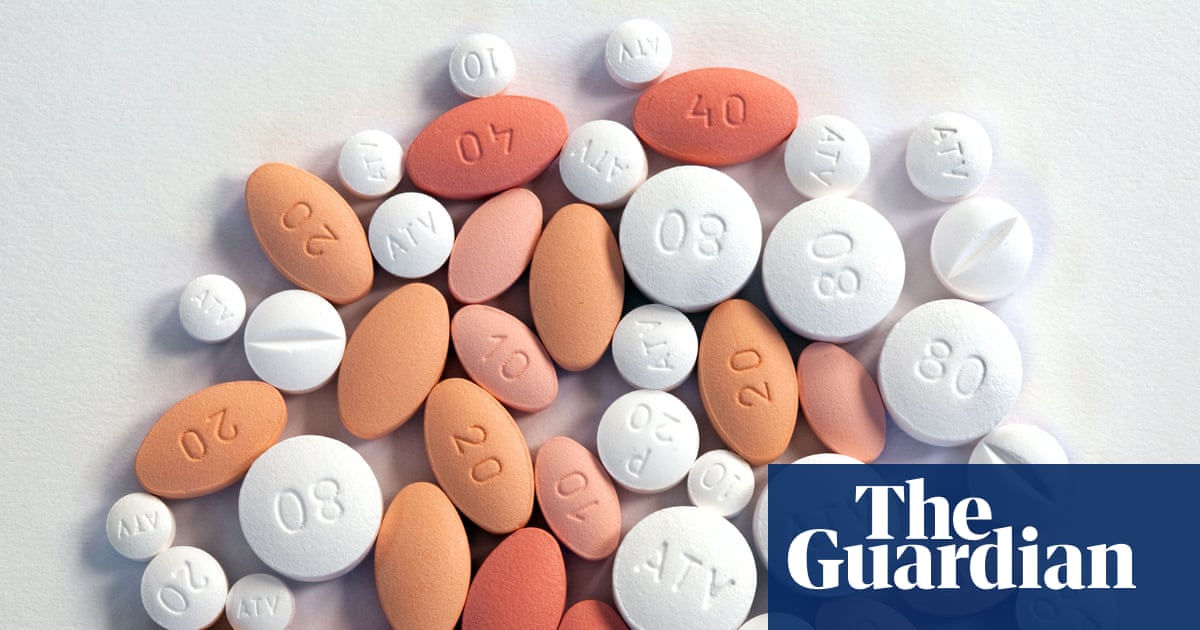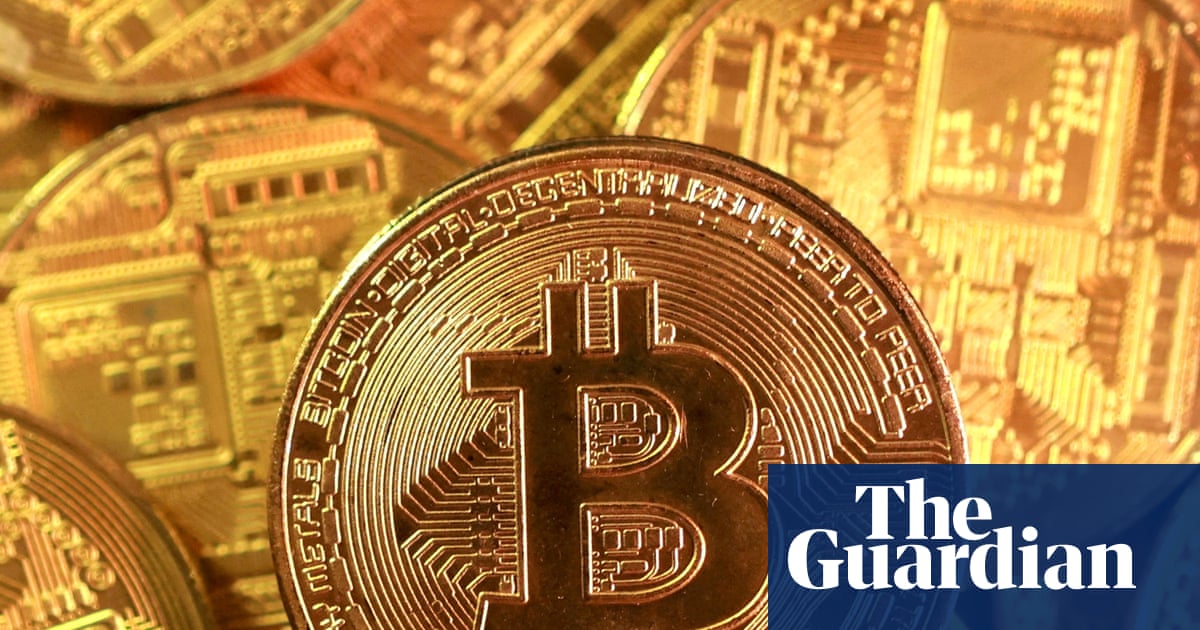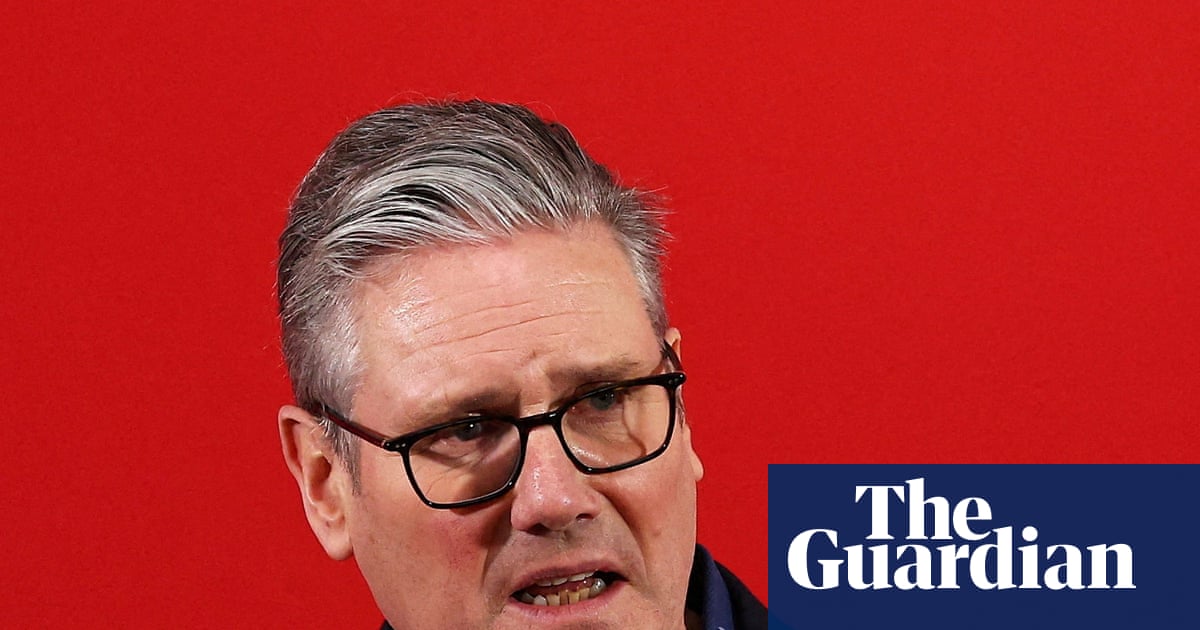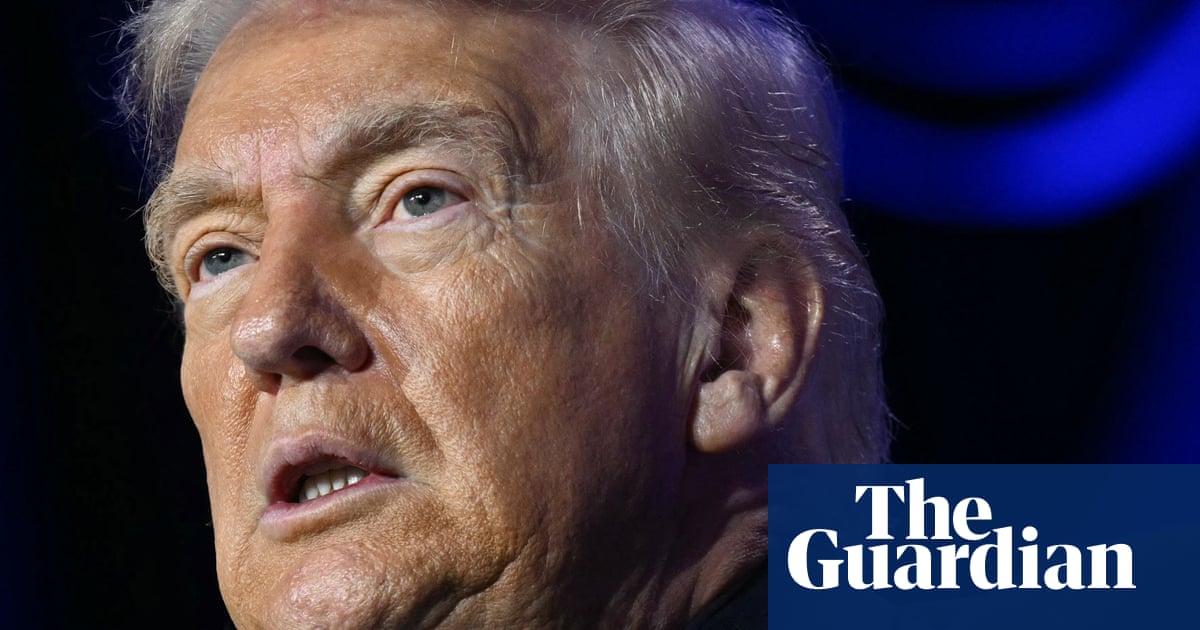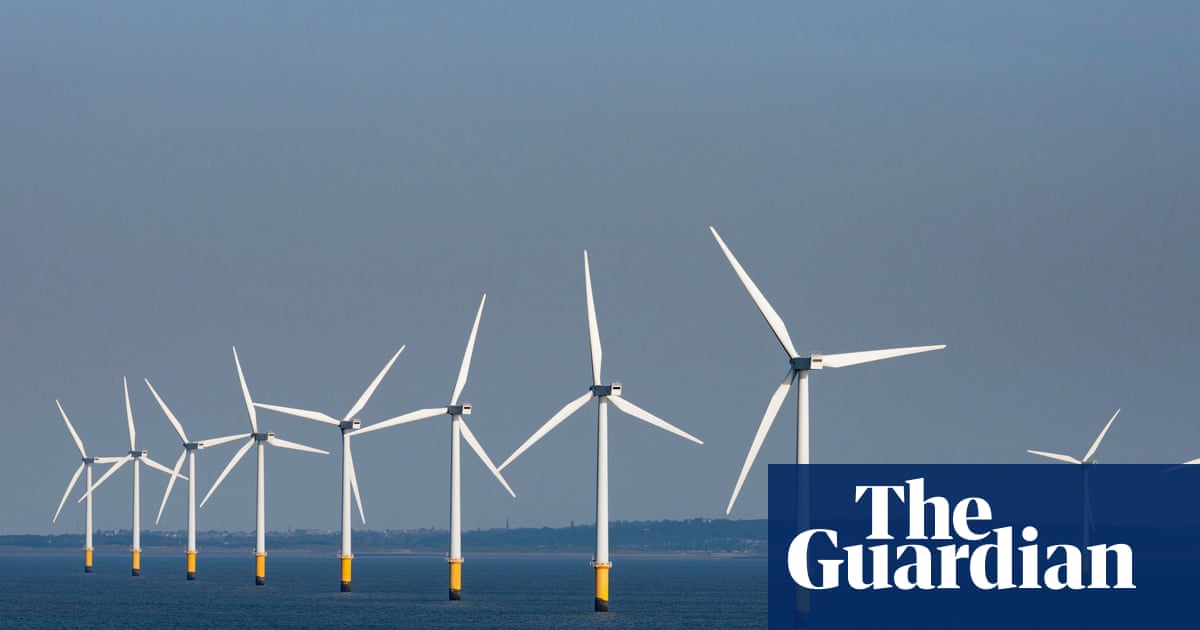Introduction: Markets welcome deal to end US shutdown
Good morning, and welcome to our rolling coverage of business, the financial markets and the world economy.
After some jittery sessions last week, the markets are taking heart from progress to end the longest US government shutdown in history.
Wall Street futures are indicating a higher open, after the US Senate voted to advance legislation to end the shutdown, with a group of breakaway Democrats reached an agreement with Republicans.
This compromise bill would reauthorize funding and undo the layoffs of some employees, but doesn’t guarantee the extension of healthcare tax credits, which had been a key Democrat demand.
If the Senate eventually passes the bill, the package must still be approved by the House of Representatives and sent to President Donald Trump for his signature, a process that could take several days.
Relief that the 40-day shutdown could soon be over has lifted markets in Asia. Japan’s Nikkei 225 index has gained 1.2%, while MSCI’s broadest index of Asia-Pacific shares outside Japan is up 1.3%.
The shutdown has hit the federal workforce, hurting many public services, and put welfare benefits for tens of millions of Americans at risk. It also created an economic fog of uncertainty as investors have been deprived of important data showing the health of the economy.
The futures market indicates the US S&P 500 index could rise 0.7% when trading begins later today, while the tech-focused Nasdaq is up 1.2% in pre-market trading.
Tony Sycamore, IG analyst, says:
The breakthrough on the shutdown—combined with President Trump’s renewed pledge to deliver at least $2,000 in tariff-funded dividend checks to most Americans (excluding high earners)—has lifted Nasdaq 100 futures 0.60% to 25,316 in early Asian trading.
While the reopening restores critical services and eases economic uncertainty, the rebate plan remains contingent on congressional approval and sufficient tariff revenue, leaving its timing and feasibility still in question.
The breakthrough came after a pledge for a later Senate vote on whether to extend subsidies for Affordable Care Act health plans.
Democrats within and beyond Washington denounced the compromise, concerned that it does not resolve the issue of healthcare subsidies.
Democratic Senator majority leader Chuck Schumer said:
“This healthcare crisis is so severe, so urgent, so devastating for families back home, that I cannot in good faith support this [resolution] that fails to address the healthcare crisis.”
California’s governor, Gavin Newsom, wrote on social media.
“Pathetic. This isn’t a deal. It’s a surrender. Don’t bend the knee!”
The agenda
-
4pm GMT: House of Lords Economic Affairs Finance Bill sub-committee to hear evidence on tax policy making principles
Key events Show key events only Please turn on JavaScript to use this feature
A quick recap
Global markets have rallied today after the US Senate took the first step to end the longest government shutdown in history.
The news that the Senate had narrowly advancing a compromise bill which will reauthorize funding and undo the layoffs of some employees has cheered investors worldwide.
In London, the FTSE 100 share index came within a whisker of hitting a new all-time high in morning trading. It’s currently up 0.9% at 9,770 points, just 18 points shy of a new peak.
The pan-European Stoxx 600 index has jumped by 1.4%, with gains in Frankfurt, Paris, Madrid and Milan as well as London.
Wall Street looked due to open higher with Nasdaq futures up 1.5% while S&P 500 futures have risen by 0.9%.
The oil price has strengthened too, with Brent crude now up 0.5% at $63.92 per barrel, while gold jumped 2%.
Tom Stevenson, investment director at Fidelity International explains:
“Investors have come out of the weekend in a much better mood than they entered it.
“Last week ended very much on the back foot, as AI-focused US tech stocks lost close to $1trn in value in the worst week for the sector since Donald Trump’s tariff announcements in April.
“But markets rallied on Monday after the US Senate began moves to end a month-long shutdown of the Federal government. Germany’s Dax was up 1.5%, building on a strong recovery in Asia, where South Korea’s Kospi index was 3% higher and shares in both Hong Kong and Japan rose more than 1%.
“Eight Democrats crossed party lines to endorse a compromise plan that keeps the government funded until the end of January, reversing lay-offs initiated by the White House last month.
Four ex-Glencore oil traders have pleaded not guilty in a London court today to bribery charges relating to the Swiss commodity trader’s operations in west Africa ahead of their trial in 2027.
Martin Wakefield pleaded not guilty to three charges of conspiring to give corrupt payments to government officials in Nigeria, Cameroon and Ivory Coast for Glencore’s benefitbetween 2007 and 2014, Reuters reports.
David Perez denied two counts of conspiring to give corrupt payments relating to operations in Cameroon and Ivory Coast. Paul Hopkirk and Ramon Labiaga pleaded not guilty to one charge in relation to Nigeria.
Perez and Wakefield denied a further charge of conspiracy to falsify documents relating to invoices purporting to show service fees were owed between 2007 and 2011.
Their trial is due to begin in October 2027 and take up to six months.
Glencore’s former head of oil Alex Beard was also charged with bribery offences last year, as was former head of oil operations Andrew Gibson.
Beard and Gibson, who had both indicated at their first court appearance last year that they would plead not guilty, did not appear or enter pleas on Monday.
Heathrow chief has ‘extra loud phone’ after sleeping through fire disruption
Heathrow’s boss has revealed he has obtained an “extra loud phone” after sleeping through multiple calls earlier this year when a power outage forced the airport to be closed.
Chief executive Thomas Woldbye was asleep on that fateful night in March when a fire at a nearby electrical substation disrupted the airport.
A Heathrow-commissioned inquiry led by former transport secretary Ruth Kelly found Mr Woldbye was not woken by alerts sent to his mobile, which was on a bedside table, because it had gone into silent mode “without him being aware”.
Asked at the Airlines 2025 in Westminster if he had since obtained an “extra loud phone”, Mr Woldbye replied: “Oh, absolutely. And more.”
He said he was “personally devastated” by his phone being on silent, describing it as a “technical glitch”, PA Media reports.
But he added that “nothing in this world should be depending on me alone” and “all the right people were there to take the right decisions”.
(Confessions corner: I could have used an extra loud phone alarm at around 4am today, rather than snoozing through, ahem, four alarms zzzzz)
Over in New York, US stock index futures are higher following signs of progress in Washington to end the US government shutdown.
Reuters has the details:
At 07:00 am ET, Dow E-minis were up 213 points, or 0.45%, S&P 500 E-minis were up 65.25 points, or 0.97%, and Nasdaq 100 E-minis were up 378.25 points, or 1.49%.
The CBOE Volatility Index eased 0.44 points to 18.64, retreating from a three-week high touched on Friday.
Goldman Sachs: we are not yet clearly in AI bubble territory
The question of whether artificial intelligence stocks are in a dangerous bubble has been gripping markets for weeks – analysts at Goldman Sachs, though, argue they are not.
In a research note issued yesterday afternoon, they make the case that vauations are not dangerously high, yet anyway.
They argue that there is potential for valuations to rise higher, dismissing comparisons with the end of the dot-com boom 25 years ago, saying:
-
The continued appreciation of AI-related equities is again prompting questions about whether the US equity market is in a “bubble”, as it was in the late 1990s. Our equity strategists have argued that, although valuations are high, we are not yet clearly in bubble territory.
-
“Macro bubbles”—asset price distortions with large economy-wide consequences—have generally involved not just overvalued asset prices but also dramatic impacts on spending and capital flows that have been both clues that a bubble is under way and forces that serve to undermine it. The 1990s was a classic example. Alongside soaring equity prices, investment spending boomed, leverage rose, capital poured in, and profitability and balance sheet strength declined, while credit spreads and equity volatility moved higher.
-
The macro and market imbalances that we saw then, particularly from 1998 onward, are not generally visible yet. On many metrics, the current AI-related boom has more in common with the tech boom in 1997/1998 than in 1999 or 2000. Although this does not guarantee that returns on capital will be sufficient to justify current asset prices, it suggests that, barring exogenous shocks or constraints, there may still be plenty of room for the AI investment boom to run.
Having said all that, though, Goldman do then caution that there is a “growing risk” that imbalances will become more visible as the AI investment boom extends. They point to several comparisons with the late 90s, including:
…a greater reliance on debt finance; an erosion of the corporate sector financial surplus; more complicated vendor financing arrangements; and a Fed that is cutting rates into a non-recessionary period.
European carmakers receive Nexperia chips after ban is lifted

Lisa O’Carroll
Carmakers in Europe have received their first deliveries of chips from the Chinese owned Nexperia plant following a lift on the ban on exports last week.
EU trade commissioner Maros Šefčovič confirmed on Saturday that the Chinese foreign ministry had decided it would “grant exemptions” for the export ban “provided that it is declared that the goods are intended for civilian use”.
He said:
“The measure takes effect immediately.”
https://x.com/MarosSefcovic/status/1987150095028982267
Ralf Brandstaetter, Volkswagen’s board member for China, told German newspaper Handelsblatt:
“There have already been initial exports.”
He also confirmed that the easing of restrictions that threatened to paralyse the car industry which was “days way” from closing assembly lines had been created by the deal between Donald Trump and Xi Jinping in Korea 10 days ago.
As part of that deal China agreed to pause export bans for a year while the US reciprocated by pausing the “affiliate list” restrictions on companies with some Chinese shareholders including Wingtech, the owner of Nexperia.
In turn, the Dutch government on Friday signalled it would step away from the plant in Nijmegen which it had commandeered in October because of the US security concerns.
The gold price is bouncing back this morning.
Bullion is up 2% this morning at $4,080 per ounce. That reverses some of its recent losses, after it slipped back from its latest record high of $4,381 per ounce last month.
Charalampos Pissouros, senior market analyst at Trading Point, says:
Strangely, the ultimate safe haven gold is rebounding strongly today, instead of selling off amidst the optimism surrounding the likelihood of a US government reopening.
Perhaps gold enthusiasts considered the 4000 zone as a good buying opportunity after the steep correction the metal experienced in late October, or it could be a catch-up response to the dollar slide on Thursday after Challenger, Gray and Christmas reported that US-based companies scaled back more than 150k jobs last month.
Budapest’s stock index has hit a record high this morning.
Hungary’s main stock market index, the BUX, has climbed 1% to a new peak, as investors welcomed the temporary exemption from U.S. sanctions on the use of Russian oil and gas agreed with Washington.
That examption is a win for Prime Minister Viktor Orbán after a meeting with President Donald Trump.
Orbán said the issue was vital for Hungary, and pledged to lay out “the consequences for the Hungarian people, and for the Hungarian economy, not to get oil and gas from Russia”.
Back in the City, the London stock market is inching closer to a record high.
The FTSE 100 index of blue-chip shares is now up 95 points, or 1%, at 9,777 points – just 10 points off the record high set at the end of October.
The breakthrough to (maybe) end the US government shutdown didn’t come in time to prevent a tumble in eurozone investor confidence.
A gauge of investor morale from research group Sentix has dropped this month to -7.4, down from -5.4 in October
Sentix says:
The eurozone economy remained in a growth crisis in November.
In Germany, Europe’s largest economy, the overall index fell to -20.4 from -17.9, driven mainly by a decline in expectations to -0.5 from 2.8.
Bank of England proposes watering down stablecoin backing asset rules
The Bank of England has watered down its proposed regulatory regime for sterling-denominated systemic stablecoins, following lobbying from the sector.
In a new consultation on stablecoins – crcryptocurrency pegged to a real asset – the BoE reveals that it has backtracked on its previous proposal to make stablecoin issuers hold their backing assets entirely as central bank deposits.
It is now proposing that at least 40% of backing assets are held as deposits at the Bank, meaning up to 60% could be short-term UK government debt instead.
The BoE says it is making this change after respondents to its earlier proposals “raised some concerns”, adding:
Many noted that our initial proposal for backing assets to be held entirely in unremunerated central bank deposits would not support a viable business model and was inconsistent with the prevailing business models of stablecoin issuers. Some respondents highlighted a potential trade-off between innovation and financial stability in relation to holding limits.
That’s quite an admission from the Bank, whose core duty includes ensuring the stability of the UK financial system.
But with the government eager for growth-friendly measure, the Bank has decided to do its bit. It says:
We also considered a lower percentage of sterling-denominated UK government debt securities but concluded that while this was more likely to support confidence and trust in money, it would not provide sufficient support for innovation in the UK.
The BoE is seeking feedback on its new proposals by 10 February 2026 (You can respond to this questionnaire through this web form).

 2 months ago
53
2 months ago
53






